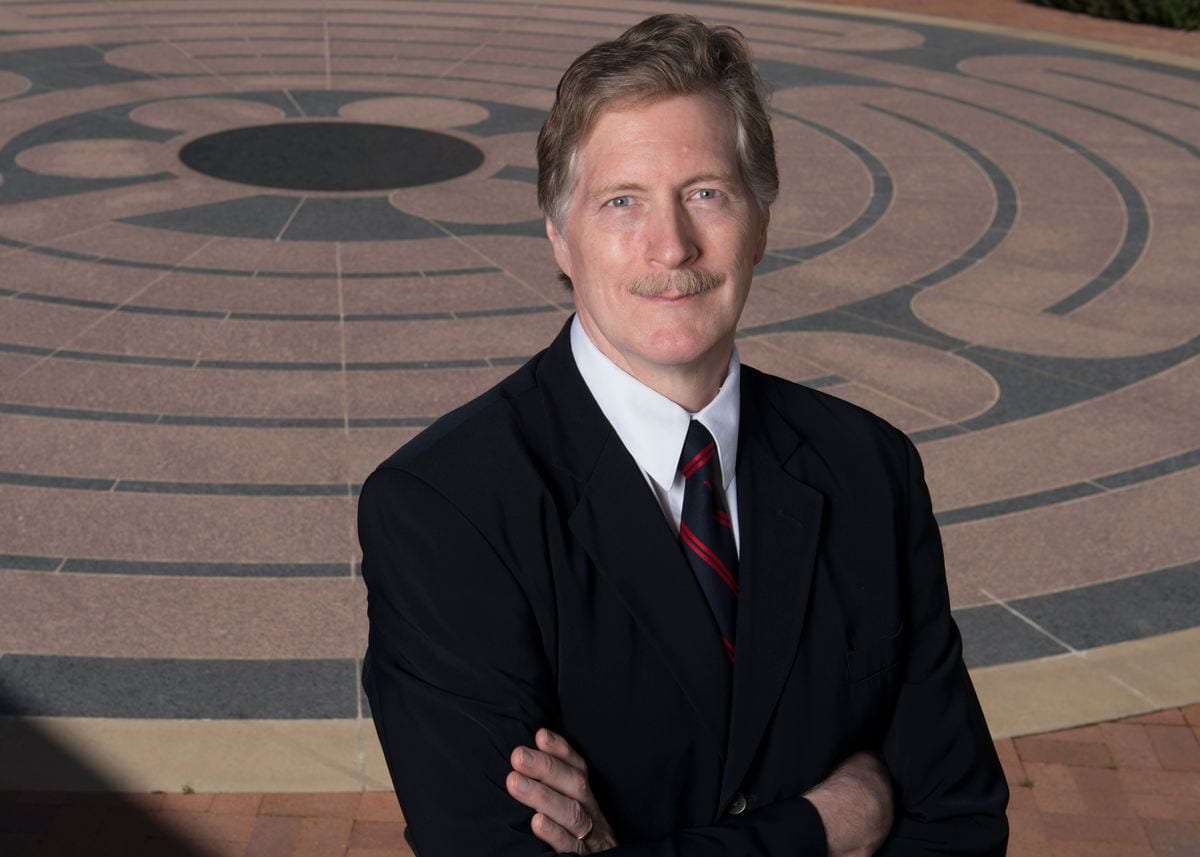The Latin phrase homo unius libri (a “person of one book”) is first attributed to Thomas Aquinas, among others, but it is most closely associated, at least for Methodists, with John Wesley. Of course, Wesley himself was exceptionally well read, including in areas such as medicine, travel, biography and poetry. Nevertheless, the Bible held a unique and primary place in his thinking. The same is true for us at Perkins.
That is not to say that studying the Bible is simple. A concern I sometimes hear expressed is that attending seminary will complicate a student’s mind. There is a grain of truth to this accusation. The same thing could be said concerning the in-depth study of virtually any subject. When you begin to look at something much more carefully, you see complexities you missed formerly. But that isn’t the end of the story.
Oliver Wendell Holmes Jr. is quoted as having said, “I would not give a fig for the simplicity this side of complexity, but I would give my life for the simplicity on the other side of complexity.” My own experience is that extended study of Scripture can and should lead one to a new and better simplicity lying on the other side of complexity.
I like to tell the story about the first record album I purchased, Simon and Garfunkel’s immensely popular Bridge Over Troubled Water.1 I did not own a proper stereo; instead, I listened to the record on a chunky box phonograph that made up in volume what it lacked in fidelity. Its two-pound (or so it seemed) tonearm lumbered across the black vinyl like a 10-ton diesel rumbling over asphalt. It was as though Paul Simon had written with me specifically in mind. I listened to the album hundreds of times, finding ever-new ways to apply the lyrics to the circumstances of my life (quite a stretch in the case of the song Cecilia!).
Many years later, I bought a good stereo with a compact disc player. Of course, one of my first CD purchases was Bridge Over Troubled Water. I was surprised to hear things that I had missed previously, such as Art Garfunkel drawing breath. In no time at all, I became an audio deconstructionist, disassembling each song and analyzing its sonic bits and pieces (good bass line here, sloppy chord there). It took me a while to get back to listening to and loving the music. In time, however, I came to appreciate the fact that my stereo’s increased fidelity had ushered me closer to the original performance, whose occasional challenges were now more audible. At the same time, it made what was good, such as Simon and Garfunkel harmonies, that much better. It also enabled me to understand lyrics that I had been mis-singing for years!
The day that I began academic study of the Bible was much like the day that I purchased my first good stereo. Initially, the experience was disorienting and disconcerting. I had already attended countless Bible studies; certainly, I knew the Bible well on one level, much as I seemed to know Bridge Over Troubled Water inside out as a teenager. For a while, biblical scholarship appeared only to dismantle Scripture and to distance me from it. (I describe this experience more in my article on page 5.) Once again, it took time to hear the music, to learn that God could speak through a text I was hearing in new ways. I came to see that careful biblical study can remove layers of distortion, taking us closer to the original performance, allowing us to hear the notes more clearly, helping us to get the lyrics right. As a result, this “one book” is more vital to me now than ever.
In this 2020 issue of Perspective, we invite you to join Perkins School of Theology in our study of the Bible. Learn from Rare Books and Manuscript Librarian R. Arvid Nelsen about the remarkable Bible collections at Bridwell Library and how sharing these significant treasures impacts students at Perkins, others at Southern Methodist University, community members and researchers from around the world. Read about studying the Bible in local churches and on educational trips led by our own professor Jaime Clark-Soles. How is that like and unlike teaching a seminary class? Enter biblical study from the vantage point of our students, whose story echoes my own. Join our international students as they journey to Texas to hear the biblical story in a new context. Grow with insights from our faculty about their own passion for the Bible.
I would be remiss if I did not make one final point: Bible study at its best is a kind of conversation. We study and question the text, but the text in turn studies and questions us – or at least it will if we allow it, if we “have ears to hear.” When all is said and done, the most important reason for reading the Bible is to encounter God in its pages and through its agency. That is a lifetime project.
Grace and peace,
Craig C. Hill
Dean, Perkins School of Theology
Southern Methodist University
